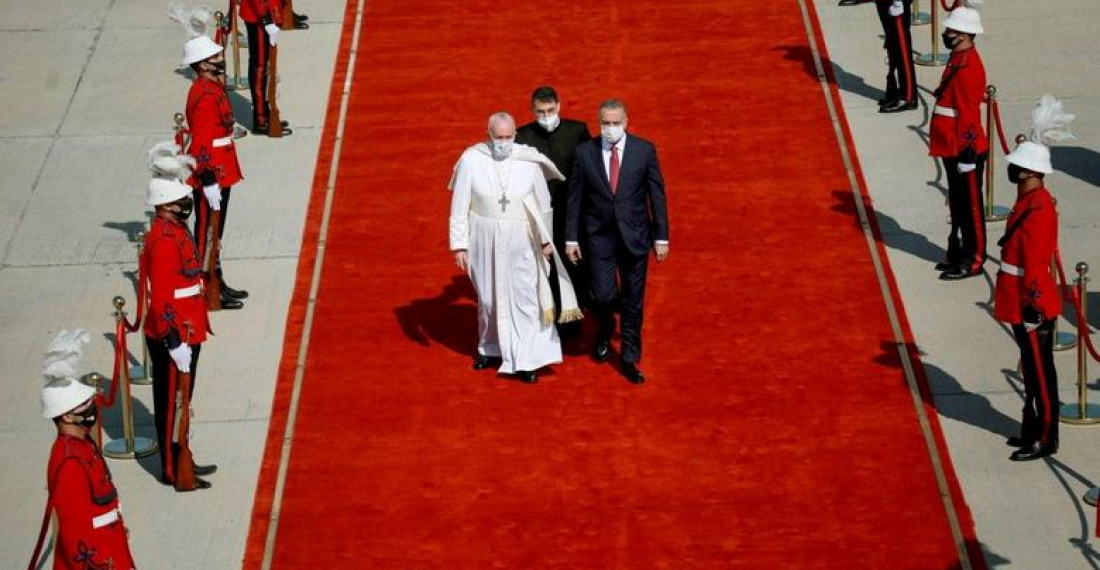The leader of the Catholic Church, Pope Francis, continues with his official and pastoral visit to Iraq today. The Pope arrived in Baghdad on Friday on the first papal visit to Iraq in history.
Pope Francis started his programme with an address to the civil leaders of the country at the presidential palace, in the presence of the president of Iraq and other dignitaries.
The crises facing Iraq can be overcome by building a society based on fraternal union, solidarity and concord through concrete acts of care and service, especially for the vulnerable and those most in need. After a crisis, what will help us rebuild the world better than what was before is the virtue of fraternal solidarity and coexistence, the Pope said.
Pope Francis said the disastrous effects of wars, the scourge of terrorism, and sectarian conflicts that have plagued Iraq over several decades have often been grounded in a fundamentalism incapable of accepting the peaceful coexistence of different ethnic and religious groups, and different ideas and cultures.
The Pope noted that this has brought about death, destruction, and ruin, not only materially but has also caused heartbreaks and wounds that will take years to heal. He particularly mentioned the Yazidis, “innocent victims of senseless and brutal atrocities, persecuted and killed for their religion, and whose very identity and survival was put at risk.”
Pope Francis said that only when we learn to look beyond our differences and see each other as members of the same human family will we be able to begin an effective process of rebuilding and leave future generations a better, more just and more humane world.
In this regard, he pointed out that Iraq, with its hallmark of religious, cultural and ethnic diversity, is called to show everyone, especially in the Middle East, that diversity should lead to harmonious cooperation within society, rather than giving rise to conflict.
Fraternal coexistence, continued Pope Francis, calls for patient and honest dialogue, protected by justice and respect for the law, a difficult task that calls for the commitment of all. We need to set aside rivalries and contrapositions and regard one another from our deepest identity as fellow children of the one God and Creator.
Expressing deep sorrow for the untold destruction and cruelty the Iraqis are going through, the Holy Father said he was among them “as a pilgrim of peace in the name of Christ, the Prince of Peace.” “May the clash of arms be silenced” in Iraq and everywhere, he urged, before making a series of appeals.
He called for the end to partisan interests, and that the voice of builders, peacemakers, the humble, the poor and the ordinary men and women be heard.
“May there be an end to acts of violence and extremism, factions and intolerance! May room be made for all those citizens who seek to cooperate in building up this country through dialogue and through frank, sincere and constructive discussion.”
For this to happen, the Holy Father said, “it is essential to ensure the participation of all political, social and religious groups and to guarantee the fundamental rights of all citizens.”
Pope Francis also reminded the international community of its duty to promote peace in Iraq and in the Middle East as a whole.
The Catholic Church in Iraq, said Pope Francis, desires to cooperate constructively with other religions in serving the cause of peace.






